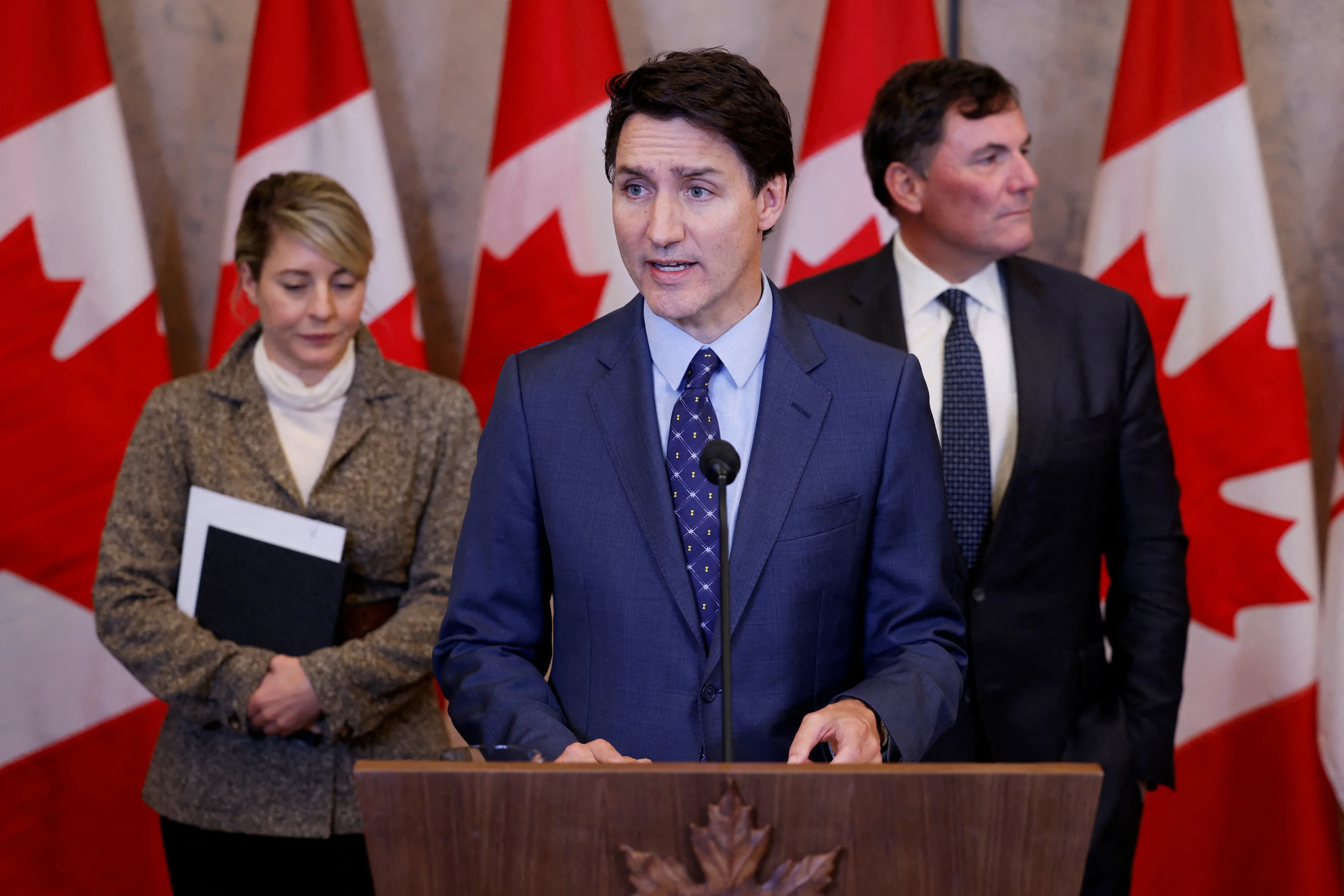Canada expelled six Indian diplomats, including the high commissioner, on Monday. The government linked these diplomats to the murder of a Sikh separatist leader. Additionally, Canada alleged a broader effort to target Indian dissidents in the country. The move marks a significant escalation in diplomatic tensions, as Canada seeks accountability for the actions of these expelled diplomats.
Earlier in the day, India retaliated by ordering the expulsion of six high-ranking Canadian diplomats, including the acting high commissioner. It also announced the withdrawal of its envoy from Canada, contradicting Canada’s statement of expulsion.
Fraying Diplomatic Ties
The diplomatic row represents a major deterioration of relations between the two Commonwealth countries. Since last year, Canadian Prime Minister Justin Trudeau has said he has evidence linking Indian agents to the assassination of Sikh leader Hardeep Singh Nijjar on Canadian territory, causing ties to fray.
The government now has “clear and compelling evidence that agents of the government of India have engaged in and continue to engage in activities that pose a significant threat to public safety,” Trudeau said at a news conference.
These activities involved clandestine information-gathering techniques and coercive behavior. They also targeted South Asian Canadians and included over a dozen threatening and violent acts, including murder, he said.
“This is unacceptable,” he said, adding that India had committed a fundamental error by engaging in criminal activities in Canada.
India has long denied Trudeau’s accusations. On Monday, it dismissed Canada’s move on the inquiry and accused Trudeau of pursuing a “political agenda.”
The Royal Canadian Mounted Police stated in an earlier news conference that the government of India had undertaken a broad campaign against Indian dissidents. This campaign included homicides and extortion. The police also noted that India had used organized crime to target the South Asian community in Canada. Additionally, they indicated that India had interfered in democratic processes.
Ongoing Investigations
Brigitte Gauvin, RCMP’s assistant commissioner, said “what we have seen is…the use of organised crime elements” and named “the Bishnoi group”.
She said the group “we believe…is connected to the agents of the Government of India”.
India’s National Investigation Agency (NIA) says Lawrence Bishnoi is the head of an organised criminal syndicate. He is in a jail in western India awaiting trial on terrorism charges.
Bishnoi’s lawyer, Rajani, who only uses one name, stated that the investigation agencies will investigate the Canadian allegations. She added that they will reveal whatever evidence they find.
Regarding the NIA’s charges, she stated that investigators are still examining the cases. They have not yet framed final charges.
Canada’s foreign ministry stated that it made the decision to expel these individuals with great consideration. It reached this decision only after the RCMP gathered ample, clear, and concrete evidence identifying six individuals as persons of interest in the Nijjar case.
India stated that it was withdrawing its diplomats from Canada because it lacked confidence in the Canadian government’s ability to guarantee their safety.
“We have no faith in the current Canadian Government’s commitment to ensure their security. Therefore, the Government of India has decided to withdraw the High Commissioner and other targeted diplomats and officials,” India’s foreign ministry said in a statement.
India also said it had asked six Canadian diplomats to leave by Saturday. The ministry also said it had summoned Acting High Commissioner in India Stewart Wheeler, currently Canada’s top diplomat in the South Asian country.
Also See: Inside & Beyond the India-Canada Diplomatic Trouble
MAJOR RUPTURE
Canada’s Foreign Minister Melanie Joly stated that the government had requested India to remove the diplomatic immunity of six diplomats. This would allow Canadian investigative agencies to question them regarding allegations of criminal activity.
But since India did not co-operate, it had decided that the diplomats be expelled.
“We’re not seeking diplomatic confrontation with India,” she said. “But we will not sit quietly as agents of any country are linked to efforts to threaten, harass or even kill Canadians.”
Canada withdrew more than 40 diplomats from India in October 2023 after New Delhi asked Ottawa to reduce its diplomatic presence.
“We have gone from a rift to a major rupture in the relationship with India,” said Fen Osler Hampson, a professor of international relations at Ottawa’s Carleton University, in a telephone interview. “At this juncture, it is hard to see that a return to normalcy will happen any time in the foreseeable future”.
Canada is home to the highest population of Sikhs outside their home state of Punjab and demonstrations in recent years have irked India’s government
The U.S. also alleged that Indian agents attempted to assassinate another Sikh separatist leader in New York last year. They indicted an Indian national who worked at the behest of an unnamed Indian government official.
An Indian government committee investigating Indian involvement in the foiled murder plot will meet U.S. officials in Washington this week, the State Department said on Monday.
The accusations of assassination plots against Sikh separatist leaders in Canada and the U.S. have tested their relationship with India. As they navigate this tension, both countries are looking to forge deeper ties with India to counter China’s rising global influence.
This news is sourced from Reuters and is intended for informational purposes only.






![Ukrainian and Russian flags with soldier silhouettes representing ongoing conflict. [Image via Atlantic Council].](https://southasiatimes.org/wp-content/uploads/2026/02/2022-02-09T000000Z_1319661209_MT1NURPHO000HXCNME_RTRMADP_3_UKRAINE-CONFLICT-STOCK-PICTURES-scaled-e1661353077377.jpg)